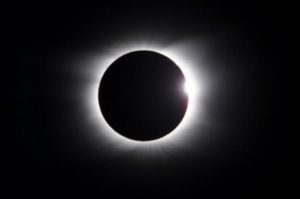Epochal events, by definition, don’t come around often, but when they do it is good for the authorities to prepare for them with all the resources they have on hand.
North Texas is about to be the scene of one of those events on Monday. It will occur shortly after 1 p.m. when the moon passes in front of the sun, turning the bright daylight of a mid-spring day into the blackness of night.
The last total solar eclipse I can recall occurred in the early 1980s. On that day the sky was overcast, just as the weather service is predicting for much of Texas on Monday. But the sky over Oregon got dark during that earlier event, as it will on Monday here in Princeton, Texas, where I am hanging my hat these days. I remember then hearing about how zoo animals cowered in the dark, how wolves howled and dogs barked.
The TV stations, plus all the cable networks are planning wall-to-wall “team coverage” of the event beginning around noon. I heard one of the local TV stations is planning to launch drones presumably to get above the cloud cover to take pictures of the moment the moon darkens the sun’s glow.
Police departments and Texas transportation officials are planning to make their presence felt on our streets, roads and highways to ensure motorists are paying attention to the traffic and avoiding the temptation to look skyward, even though the weather guys and gals say there will be nothing to see.
I obtained my eclipse-watching glasses. I am staying home that day. I’m going to look skyward at just the right time … hoping that a break in the clouds might occur in correct spot to get a glimpse of the event.
And no, I will not peer with unprotected eyes at the sun the way the 45th POTUS and his wife did some years ago when they looked at an eclipse that appeared over the East Coast.
However, I am ready to be thrilled by this event that won’t repeat itself in this country until I am long gone.
